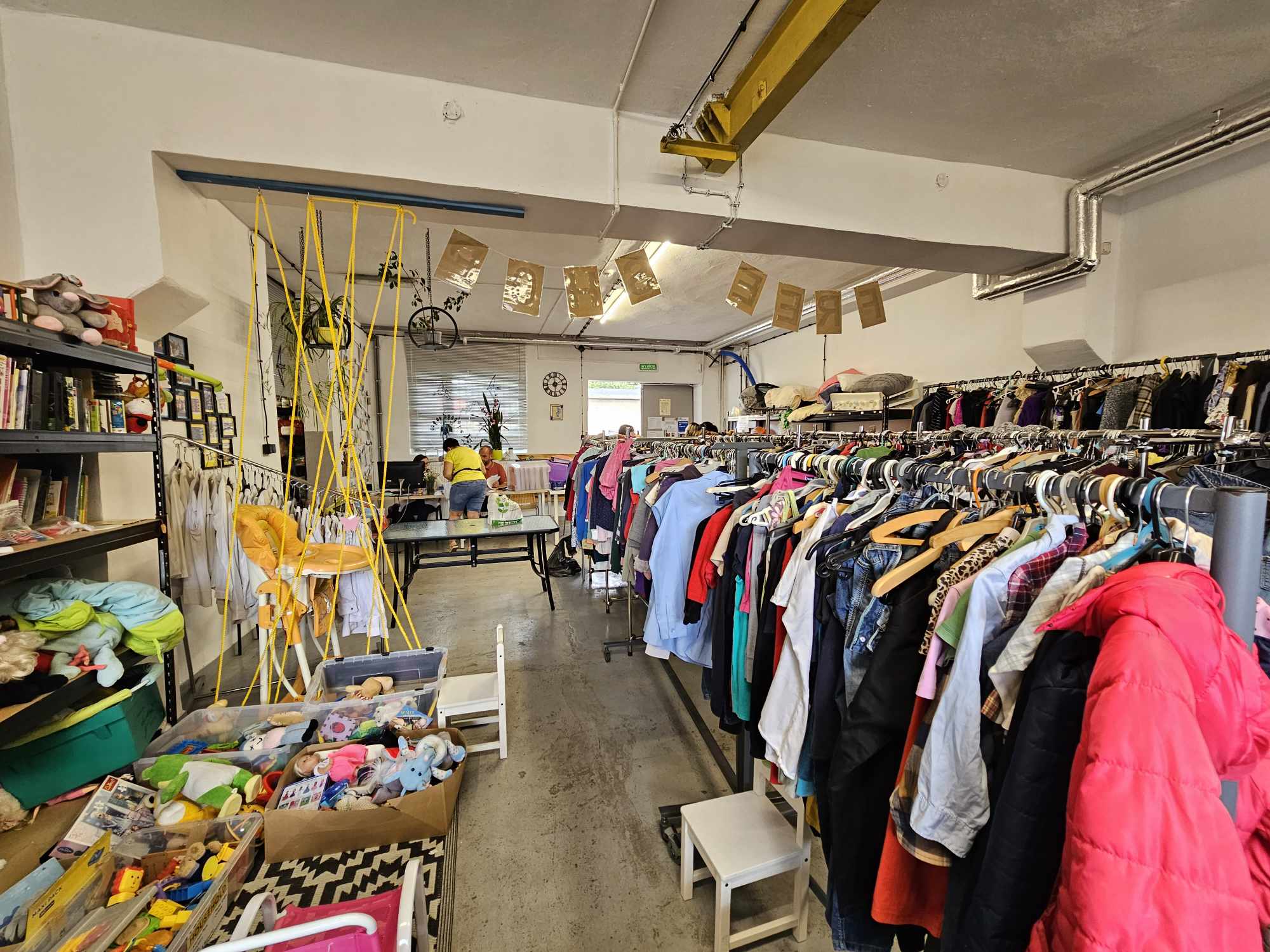The „Social Emergency” Association has been operating for over 20 years, helping people from vulnerable groups. Since the beginning of the full-scale Russian invasion in Ukraine, the organization has also been actively involved in assisting refugees, and its premises at Ratajczaka 20, which have become a hallmark of aid to Ukraine in Poznań.
We’ve spoken to the team and are ready to tell the story of this organization and the activities it conducts.
The first days of full-scale war
The „Social Emergency” Association was founded in 2004, and its main area of activity is providing assistance to socially excluded people, mainly to those in homelessness crisis. Mrs. Beata Benyskiewicz, the chairperson of the Association, says that the main goal of such activity is to help these people function independently in society.
The organization runs shelters, a Social Integration Center, and programs to counter addiction. Currently, the association has about 12 active members, close to 40 employees, and around 25 volunteers.
At the outbreak of the full-scale war in Ukraine, the Association’s team was providing usual help to people in homelessness crisis at the railway station. In the first evenings of the full-scale invasion, the organization’s employees encountered a situation that made a huge impression on them.
«Our team was distributing meals one evening to homeless people at the station… Seeing these mothers with children arriving on the railway platform, they gave up those meals and told us to give them to the newcomers, as they needed them more…», — adds Mrs. Beata.
After two days of active operations and supporting a help point at the railway station, the Association managed to obtain a premises from the municipal ZKZL for a permanent aid point in Poznań at Ratajczaka 20.
«We knew we had this premises and we could operate there. We still didn’t know exactly how and for how long and at all…We just knew we wanted to help and support,” says Mrs. Beata, adding:
«For us, it was a huge shock that in the 21st century someone could attack another country and engage in conquests like in the Middle Ages. No, it just didn’t fit in our heads».
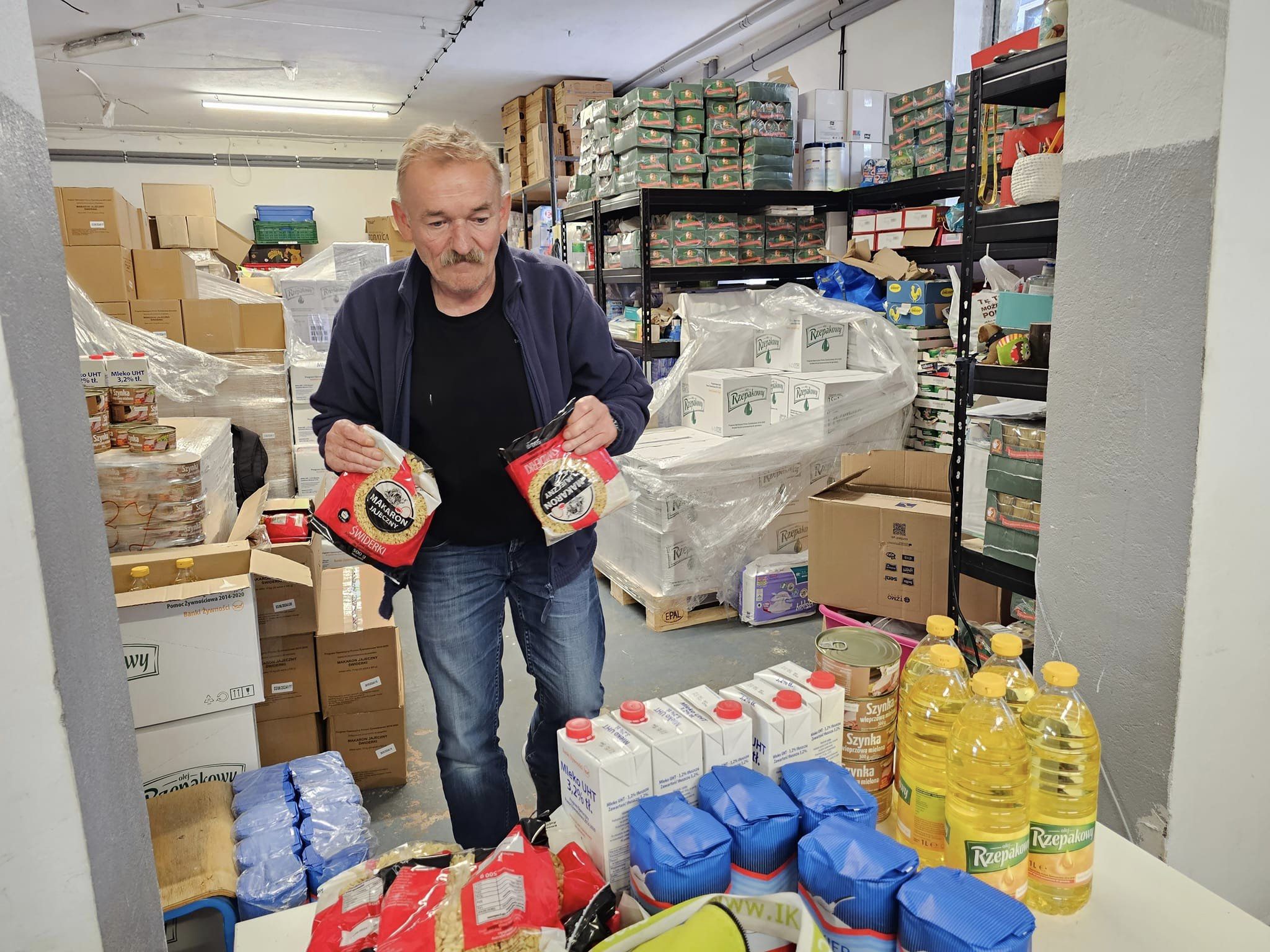
What help can be obtained at the point
For the first few months, this place operated almost around the clock, accepting dozens of donations and distributing them to people from Ukraine with refugee experience. Poznań residents shared their help, and the association’s volunteers provided it to those in need.
The point couldn’t accommodate a large number of people, so it happened that people in need had to stand outside in line for a long time, regardless of the weather and temperature.
«The grandmothers with their grandchildren waiting patiently for their turn to receive a food parcel or a toy for the child are the most memorable to me», — Mrs. Beata recalls.
The chairperson of the organization also recalls that visitors to the point often used mobile applications that informed about air raid alerts. Suddenly, at the same moment, the sound of sirens was heard throughout the room, and everyone immediately started checking their phones to find out in which region there was a threat of rocket fire.
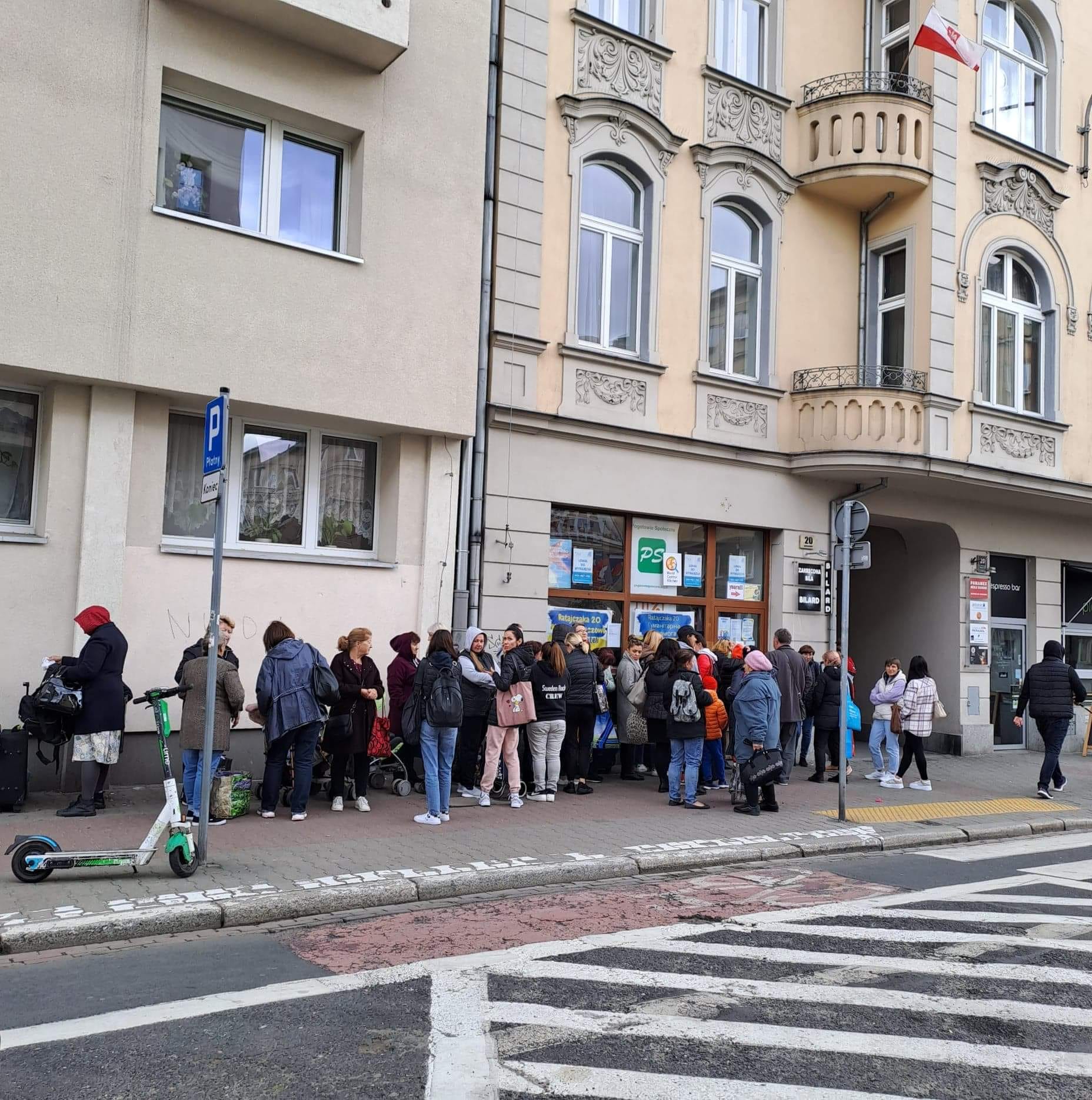
At present, in addition to distributing food and other items, the point also runs an Integration Club for children, sewing workshops, provides psychological support, and many other integration activities. Additionally, the team created a special „vocational activation and integration program for people from Ukraine.” As part of the initiative, an integration allowance was paid, which helped many people stand on their own feet. The organization’s activities were supported by many companies and international humanitarian organizations.
Since the beginning of the point’s activity, many changes have occurred. They moved to a new address: Borówki 4. Additionally, the team managed to expand and hire two Ukrainians.
Helping for almost two years was not easy; cultural differences often hindered communication, although many touching stories and thanks from people in need motivated them to continue providing assistance.
«At the same time, we are full of admiration for the people from Ukraine, who very, very quickly got back on their feet, found work, and were able to support themselves independently in Poland. We were really positively surprised».
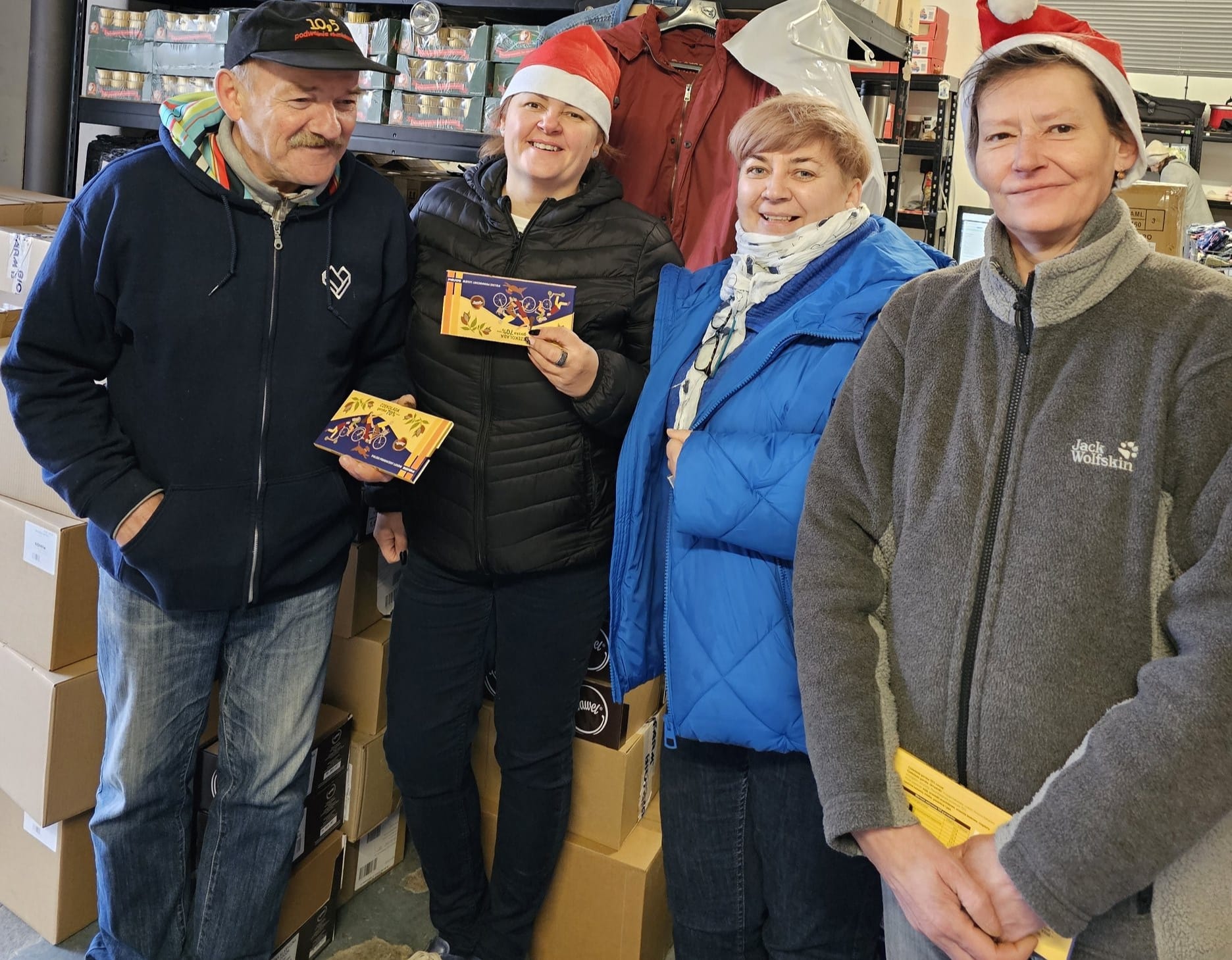
How people with experience of homelessness help Ukrainians
The volunteer team also includes people who once benefited from the assistance of the Social Emergency while in homelessness crisis. One such person is, among others, Bartek. He has been helping at the point from the very beginning. Sharing help became a way for him to repay.
From morning to evening, he loaded donations, sorted them, handed them out to those in need, helped the elderly, and was on duty to maintain order at the point. At the moment, he is still engaged in that kind of help, but to a lesser extent, as he started a new job. He supervises and supports residents of the association’s social housing and ensures order there.
«I remembered one elderly lady from Ukraine the most… Once she came to the point and thanked me very much… She repeated it many times. At that moment I felt that my help and work are important to many», — Bartek reccals.
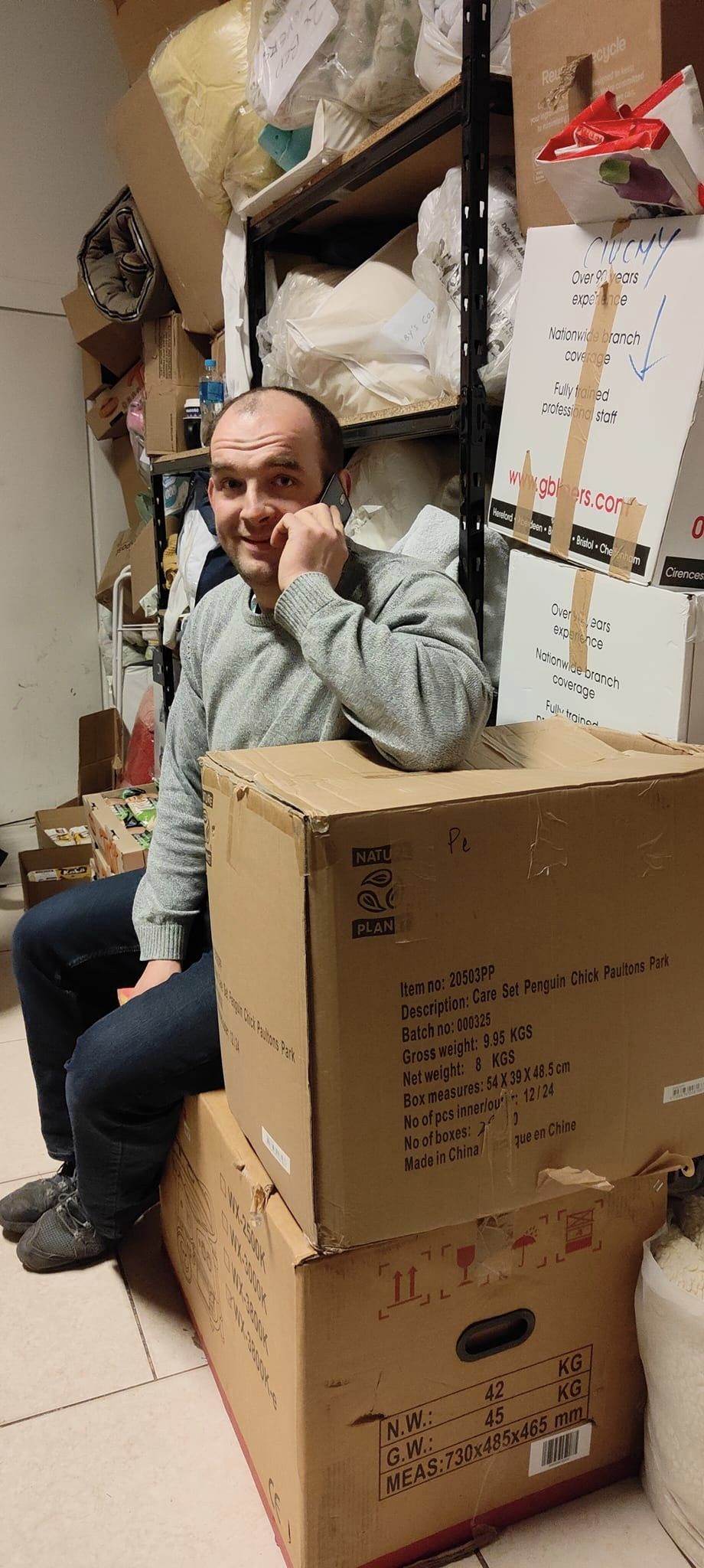
Bartek’s example shows that various groups of Polish society participated in helping Ukrainians. Moreover, according to Mrs. Beata’s words, the point’s activities were supported by many companies, international organizations, and municipal authorities.
Speaking about the future of the point and the association’s activities in supporting Ukraine, Mrs. Beata adds that they intend to continue developing and creating new programs and projects, adding that „in Polish-Ukrainian relations, we are at a stage where these geographical boundaries are no longer important. Well, maybe they are somewhere, but they will end someday. We live close to each other. And so it will probably remain so.”
Author: Maria Andruchiw
Photos: from the organizational archive
This publication was prepared with the support of the Office of the United Nations High Commissioner for Refugees (UNHCR). The contents of this publication are the sole responsibility of the editors of UAinKrakow.pl and can in no way be considered to reflect the views of UNHCR. For more information about UNHCR and the aid available in Poland: https://help.unhcr.org/poland/uk/

